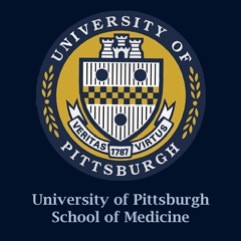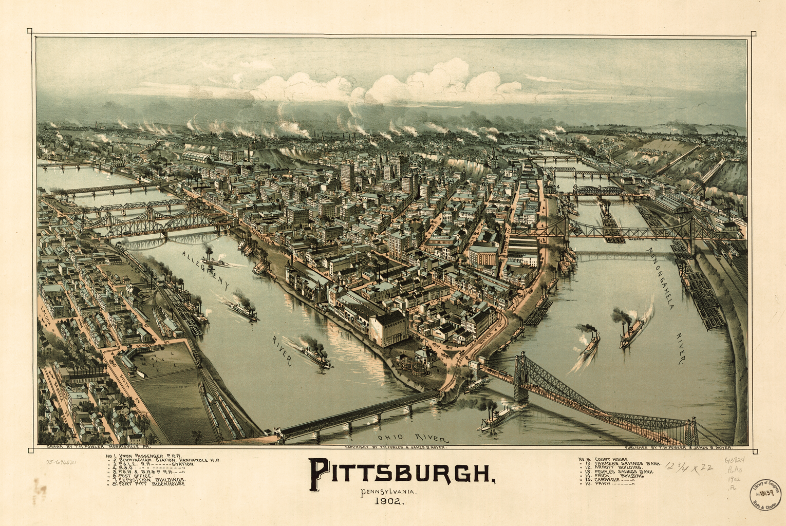Director of Community Neurology, UPMC
- Position:
- General Neurologist
- Specialty:
- Neurology – General, Neurology – Clinical Neurophysiology, Neurology – Epilepsy , Neurology – Memory Disorders, Neurology – Movement Disorders, Neurology – Neurocritical Care, Neurology – Stroke, Neurology – Vascular, Leadership
- Location:
- Beaver, Pennsylvania

Opportunity Overview:
The University of Pittsburgh and the UPMC Health System are seeking a board certified/eligible neurologist to join their nationally recognized Department of Neurology and serve as the Director of Neurology at Heritage Valley Beaver Medical Center. This general neurology opportunity with the University of Pittsburgh Medical Center (UPMC) will be based at one of the UPMC affiliate hospitals, Beaver Valley Medical Center, and located in the greater Pittsburgh area. The fully appointed faculty opportunity combines the ideal aspects of a community hospital based neurology practice with the full support and resources from a medical school, neurology department and health system that is consistently ranked among the best in the nation by US News and World Report. The opportunity offers no call, no inpatient responsibilities, and an excellent work-life balance with a Monday – Friday, 8 – 5 work week. Below are some noteworthy details about the role.
The UPMC strategy for expanding into community hospital locations is designed to create thriving neurology programs in their own right; enhanced by a globally recognized enterprise dedicated to clinical excellence, advancements in research, and world renowned residency and fellowship programs. The net result to the incoming neurologist is the ability to develop sub-specialty programs in tandem with a vibrant general neurology practice, to the extent that your interests, qualifications, available clinical resources and patient demand allow. Although fellowship training is not required for this role, individuals with subspecialty training are encouraged to apply.
Clinical Specifics
The incoming neurologists will be expected to have 8 half day, outpatient neurology clinics throughout the week, leaving a full day for administrative duties. These clinics will be general neurology, however, ample opportunity exists for a sub-specialist to practice their desired sub-specialty given that the patient base will support the clinic. The benefit for somebody that wishes to sub-specialize is realized once the patient based has been garnered and the vast resources and support of UPMC have been utilized. The work week is Monday-Friday with daily hours of 8-5. In addition to the favorable hours, the call that any incoming neurologist would take is extremely minimal, particularly so given the presence of a strong tele-medicine program, two PAs and additional capable physician extenders. The neurology service has recently hired an additional PA to further their support for the program and incoming director.

Heritage Valley Health System – Beaver Medical Center:
Heritage Valley Beaver Medical Center is part of a community hospital system that has partnered with UPMC to provide the highest quality comprehensive healthcare to a catchment population of 3.5 million people throughout a 4 county region in Pennsylvania, the eastern part of Ohio, and the panhandle region of West Virginia. The Heritage Valley Health System is comprised of 4,000 employees and 450 physicians offering a broad range of medical, surgical, and diagnostic services.
Beaver Medical Center is a 334 bed acute care hospital located in Beaver, PA in the Greater Pittsburgh area that saw over 15,000 admissions last year. The hospital received the Get With The Guidelines – Stroke Silver-Plus Quality Achievement Award for implementing specific quality improvement measures outlined by the American Heart Association/American Stroke Association for the treatment of stroke patients. The implementation of a telestroke service and a collaborative approach to stroke care has resulted in a higher quality of care for the region’s stroke patients. Beaver Medical Center also recently opened the inpatient Good Samaritan Hospice on the 4th floor of the hospital, allowing patients and families to receive around the clock care in a more comfortable environment. In partnership with UPMC, Beaver Medical Center also boasts a cancer center and a WoundCare Program that is accredited by the Undersea and Hyperbaric Medical Society. In 2014, Heritage Valley Health System was ranked as the 35th on the 2014 IMS Health Top 100 Integrated Delivery Networks.

Impressive Clinical Resources
The community hospitals are staffed with all necessary specialists, hospitalists, suitably skilled clinical staff, and up to date diagnostic technologies to treat the vast majority of cases within the population served. Likewise, each community hospital campus includes integrated specialty outpatient clinics which are staffed with the necessary clinical and administrative staff to enable all patient activity to routinely occur within the weekday hours of 8-5. In addition to the impressive resources provided by the Heritage Valley System, their partnership with UPMC immensely extends the amount of support and resources available to the incoming neurology director and subsequent neurologists.
High Quality of Life
Each community hospital is fully integrated within UPMC’s world renowned triage systems such as the UPMC telemedicine system for use when patients present symptoms of an acute nature, such as stroke. At the discretion of the community hospital attending physicians and ED staff, stroke patients are immediately accessible by UPMC based vascular subspecialists via two way audio, video and neuro-imaging communication to determine if the patient is a candidate for acute stroke therapy, including tPA and neurological intervention. The result, in addition to the obvious benefit to patients is a minimized demand for after hours neurology consults. Alternatively, faculty with a strong interest in participating in the telemedicine program or emergent treatment would be provided with such opportunities as practically feasible.
Extensive Support for Personal Growth
UP Neurology faculty, regardless of location, are provided with the same state of the art virtual access to every resource and opportunity for learning. Online access to CME courses, peer reviewed publications, special conferences, and grand rounds presentations are available 24×7 via UPMC’s extensive physician’s resources capabilities. Additionally, faculty with specific interests in clinical research, clinical trials, or scholarly mentorship are encouraged and provided with the necessary means to do so.
Support for Program Expansion
For various reasons, including an assertive and effective UPMC outreach system, the 3.5 million person catchment population surrounding the greater Pittsburgh area is served in large measure by hospital based programs. As a result, there is an insignificant presence of practitioner owned private practices. The benefit to you is the ability to focus on treating a steady, predictable flow of new patients into your programs, without regard for individually driven outreach programs for the sole purpose of programmatic expansion. Conversely, faculty are supported and encouraged to establish outreach programs for the purpose of patient education, as they determine beneficial to the community.
Beaver Valley Medical Center and the ‘Privademic’ Model
Heritage Valley Beaver Medical Center is an affiliate of the University of Pittsburgh Medical Center, placing it squarely in the ‘privademic’ category of healthcare entities. The fully appointed faculty opportunity combines the ideal aspects of a community hospital based neurology practice with the full support and resources from a medical school, neurology department and health system that is consistently ranked among the best in the nation by US News and World Report.
UPMC Department of Neurology
UPMC’s US News and World Report ranked Neurology Department is led by Dr. Lawrence Wechsler, a renowned expert in vascular neurology. The department boasts 50 plus neurologists and five centers of excellence, including its Comprehensive Stroke Center featuring its robust Stroke Telemedicine Program. In the most recent rankings, the department also ranked 18th in the country in NIH funding.
The Department continues to make significant advances in patient care, teaching, and clinical and basic research, consistent with the mission of the Neurology Department, the School of Medicine, and University of Pittsburgh Physicians (UPP). Key areas of excellence include the UPMC Stroke Institute; the UPMC Headache Center; the Alzheimer’s Disease Research Center (ADRC); the Pittsburgh Institute for Neurodegenerative Diseases (PIND); and the American Parkinson Disease Association Advanced Center for Parkinson’s Research. The Neuromuscular, Epilepsy, Headache, Cognitive and Behavioral Neurology, Stroke, Movement, Neuro-immunology/Multiple Sclerosis and General Neurology divisions provide key clinical diagnosis and treatment.
The incoming faculty member will benefit from collegiality, mentorship and growth opportunities on a scale that would be challenging to find elsewhere. Five major clinical care and multiple community hospital locations serve a catchment population of approximately 3.5 million people. Each of ten separate clinical divisions is nationally recognized its own right. The highly sought after neurology education programs include a residency program and fellowship programs including stroke, clinical neurophysiology, movement disorders, neurointerventions, neurocritical care, epilepsy and headache.
University of Pittsburgh Medical Center
The University Of Pittsburgh Medical Center is a national and international referral center and has again been ranked in the US News and World Report survey on America’s Best Hospitals. The most recent rankings place UPMC at number 13 with 14 adult specialties ranked; for the 2015 fiscal year UPMC received nearly $500million in NIH funding.
A $12 billion-organization, UPMC operates more than 20 academic, community, and specialty hospitals, more than 500 doctors’ offices and outpatient sites, 17 Senior Communities, more than 40 Cancer Centers housing more than 2000 physicians and researchers, has 5700 affiliated physicians and employs nearly 3600 physicians, and offers a wide array of rehabilitation, retirement, and long-term care facilities. UPMC owns 60% of the medical-surgical market share in Allegheny County and 41% of the same market in the 29 county region of Western Pennsylvania. UPMC has created a genuinely integrated health delivery system. With renowned centers of excellence in transplantation, cancer, neurosurgery, psychiatry, rehabilitation, geriatrics, and women’s health.
2015 Patient Volume
- More than 284,000 inpatient admissions and observation cases
- More than 3.9 million outpatient visits
- More than 710,000 emergency visits
- Nearly 185,000 surgeries
- More than 700,000 home care visits
University of Pittsburgh School of Medicine:
The University of Pittsburgh School of Medicine is a dynamic, fast-growing national leader in sciences, education, and medicine. The medical school is located in Oakland, a vibrant university district nestled in the heart of an affordable and comfortable community. Pittsburgh is a major American city with a long tradition of innovation and progressive thought; its people have a proven track record of transforming creative ideas into action. Students and faculty from all over the United States and the world choose to come here because of the exciting opportunities for research and career development in this diverse academic community with people of varied backgrounds, experiences and intellectual interests.

The University of Pittsburgh Medical Center makes the training environment special. UPMC is one of the largest and best integrated hospital and health care networks in the United States. The Medical School’s clinical faculty practice medicine primarily through this network and it provides an astonishing array of clinical settings, patient populations and clinical research resources. Because of the strong partnership between the School of Medicine and UPMC, graduate students have access to clinical research programs that are simply not available in other medical school environments and certainly not in programs outside of medical schools. The partnership between the medical school and UPMC has led to the establishment of many research centers and institutes that bring together basic scientists, clinical scientists, physicians, graduate students and physicians-in-training.

Pittsburgh, Pennsylvania:
Overview
Pittsburgh is a city of immense vitality and variety and, with a population of approximately 2.5 million, greater Pittsburgh is the 13th largest metropolitan area in the United States. In 2015, Pittsburgh was ranked by Money as the Best in the Northeast, and has been ranked by The Economist as the Most Livable City a handful of times in the last decade, including its most recent 2014 ranking. Nestled in the Allegheny Mountains at the confluence of three major rivers (the Allegheny and the Monongahela rivers meet to form the Ohio), the ‘City of Bridges’ abounds in natural beauty. This spectacular natural setting is complete with lush parks and recreational sites. Pittsburgh has recently been ranked with Honolulu among the healthiest cities in the United States, and Pittsburgh is also one of the most livable, with a wealth of affordable housing options in one of the nation’s most diverse architectural communities.

Economy
The past decade has brought extensive development to the area, with a significant shift away from heavy industry and a new emphasis on biomedical, biotechnical, and applied-technology enterprises. Several office towers, a convention center, and a 600-room international hotel have been built during this period to support the changing economic base.
Research is now Pittsburgh’s third largest industry, with more than 150 laboratories and more than 7,500 scientists and engineers. USX, Westinghouse, Alcoa, H.J. Heinz, Bayer, and Mellon Bank are a few of the corporations that make their home in the heart of the downtown district, making Pittsburgh one of the largest metropolitan corporate headquarters in the country.
Culture
Cultural events flourish in Pittsburgh, home of the world renowned Pittsburgh Symphony Orchestra, the extraordinarily rich offerings of the cultural community include the Pittsburgh Opera, Civic Light Opera, Pittsburgh Ballet Theatre, Pittsburgh Public Theater, The Pittsburgh Arts Festival, Three Rivers Shakespeare Festival, Pittsburgh Dance Council, and Pittsburgh Dance Alloy, and many smaller local venues. During the summer, the American Wind Symphony travels the nation’s waterways giving riverbank performances. Internationally acclaimed ensembles perform each year under the aegis of the Pittsburgh Chamber Music Society. Major art exhibits include the Carnegie Museum, the Andy Warhol Museum, and the Mattress Factory.
An ethnically rich city, Pittsburgh has retained its neighborhoods, small communities where families cherish their traditions. Each year the Pittsburgh Folk Festival brings together more than 20 nationality groups for three days of singing, music, dancing and cuisine sampling.

Sports & Entertainment
Pittsburgh is known as the ‘City of Champions,’ and no aspect of the city inspires more enthusiasm than its sports. Home to the NHL’s Pittsburgh Penguins, the NFL’s Pittsburgh Steelers, and the MLB’s Pittsburgh Pirates, the black and gold of Pittsburgh’s team have graced the Stanley Cup, the Super Bowl and many divisional titles, pennants and World Series. New baseball and football stadia opened in 2001.
For the athlete in all of us, there are 91 public and semiprivate golf clubs in the Greater Pittsburgh region, including Schenley Golf Course (public) right in the city proper. Ski slopes can be reached in less than an hour. Boating is a popular activity on the three rivers, and sailors can also enjoy the open water of Lake Arthur at Moraine State Park and Pymatuming Reservoir, both to the north. Even world-class whitewater rafting is close by.
Excellent local science museums and facilities include the Carnegie Museum of Natural History, the Carnegie Science Center, and the Allegheny Observatory.

Rich History
History buffs can visit the restored homes of Pittsburgh’s Gilded Era; enjoy the Senator John Heinz Pittsburgh Regional History Center; or, after only a two-hour drive, walk through Civil War battlefields. Students of architecture will enjoy a tour of Frank Lloyd Wright’s classic house Fallingwater, which is just a short drive out of the city.
Quality Education
Home to a number of institutions of higher learning — including Carnegie Mellon University, Duquesne University, and the University of Pittsburgh — the city supports a vigorous intellectual life.
Whether identified as the ‘City of Bridges,’ or the ‘City of Champions,’ Pittsburgh is clearly one of the country’s premier locations for a high-quality lifestyle.





